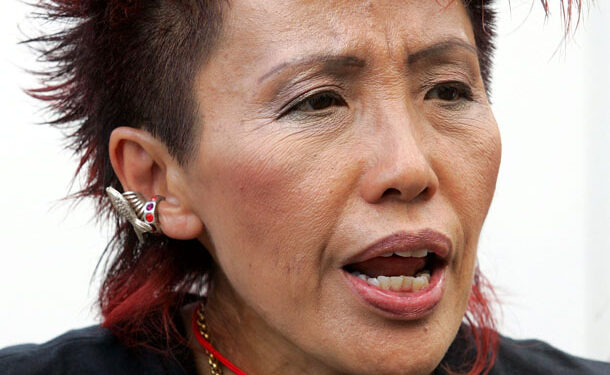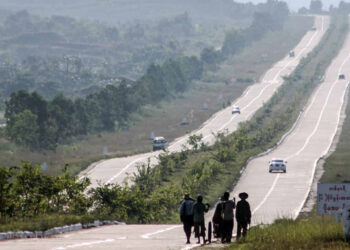Thailand’s most prominent forensics expert, Dr Pornthip Rojanasunand, who is head of the country’s Central Institute of Forensic Science, was recently called on by the defense team representing two Burmese men accused of murder to reexamine crucial DNA evidence. Zaw Lin and Wai Phyo were arrested last year for the killing of British backpackers David Miller and Hannah Witheridge on a Thai resort island on the night of September 15, 2014. However, the handling of the case by Thai police has been the subject of significant controversy and the two Burmese men have alleged they were tortured into a confession. The trial is continuing on Koh Samui. The Irrawaddy’s Saw Yan Naing spoke with Dr Pornthip about her team’s findings and ongoing involvement in the case.
How did you become involved in this case?
First of all, the defendants’ lawyers came into the institute [the Central Institute of Forensic Science] and asked us for our interpretation of the scientific evidence. They asked us to support this case. Secondly, there was a request for a second DNA [testing] of the evidence in the case. There was also a request from the National Human Rights Commission [of Thailand] for an investigation into [allegations] the suspects were tortured. So there were three issues.
Please explain what your institute’s findings were regarding the DNA test.
Our team found that the DNA profile on the weapon [a garden hoe police believe was used to kill the British tourists] didn’t belong to the suspects [Zaw Lin and Wai Phyo]. It belongs to an unknown man. We need to have the DNA of other people [involved]. We only found the DNA from an unidentified man which was not compatible with the suspects’ [DNA].
Who else should be subject to DNA testing?
That is not my duty. I can’t say who else needs to be tested. It is the task of the police.
What other requirements should be carried out in the course of fact finding for this case?
In this case, I can’t say anything because I didn’t have a chance to look at the DNA profile [related to] all the evidence. I just looked at the DNA from the weapon that the police sent to our institute. There are some [aspects] of the DNA profile that I can’t discuss. We have to wait.
There were previous reports that DNA found on the butt of a cigarette shared by the two suspects matched that found on the female victim’s body. Were you able to consider that evidence?
No. Because the police said that all that evidence was destroyed already. The police said there was no evidence left to send to our institute.
From now on, how will you and your team be involved in the process?
In the next [week or two], there will be scientific testimony given in [Koh Samui Provincial] court. Two scientists and one doctor [from the Central Institute of Forensic Science] will testify at the court. The two scientists will testify about the DNA findings. And a doctor will testify on the physical examination of the two suspects because they [the suspects] told judges and the National Human Rights Commission that they were tortured by the police [during interrogation]. The doctor did the physical determination when the suspects were in prison. So that will be our institute’s testimony.
You are very well respected for your expertise in DNA analysis. The Burmese public would be very interested in your comments. What is your message to them?
In Thailand, we have the chance to ask for help on issues of human rights. This means that victims or suspects have the right to ask for a second opinion on forensic investigations. And it’s our duty, at the Central Institute of Forensic Science under the Ministry of Justice, to do that job. We can help suspects or victims. If they want a second opinion, they can ask for it. And we will try our best.

















